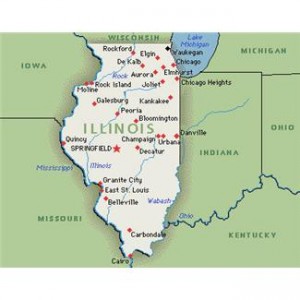Dismissal of legal malpractice claim because of law firm’s “judgmental immunity” reversed
by Christopher Graham and Joseph Kelly
Nelson v. Quarles and Brady, LLP, 2013 IL App (1st) 123122 (Sept. 30, 2013).
Ken Nelson was the majority shareholder in two corporations – Ken Nelson AutoPlaza, Inc. (“AutoPlaza”) and Ken Nelson AutoMall, Inc. (“AutoMall”).
In 1989, Nelson entered into a stock purchase agreement with his business partner, Richard Curia, under which Curia had successive purchase options. If each option was exercised, Curia would purchase all of Nelson’s shares. Curia failed to exercise the first option, but did pay Nelson $200,000 for 25% of the AutoPlaza and AutoMall’s shares.
In 1993, Nelson and Curia entered into a “Modification Agreement” which provided that the parties made a mutual mistake in determining the companies’ shares fair market value and in determining the option payments. Under the “Modification Agreement”, Curia’s percentage share ownership increased to 47.7% for AutoPlaza and 43.3% for AutoMall, without Curia making any additional payments.
Nelson alleges that in 2004: (1) he and Curia had an oral agreement under which Nelson would sell all his stock in both companies to Curia for $4.2 million; (2) Curia didn’t perform under the agreement; and (3) Curia instead tried to exercise the final purchase option under the 1989 agreement — essentially trying to procure all of Nelson’s shares for much less than $4.2 million.
Nelson retained Quarles & Brady and sued Curia in federal court seeking a declaration that the 1989 purchase option was unenforceable because of the parties subsequent agreements. Curia sought a declaration for specific performance regarding the 1989 purchase option.
Curia won a partial summary judgment that Nelson was required to comply with the 1989 purchase option and sell his shares. Nelson moved for a stay while the appeal was pending, but the motion for a stay was denied. Nelson sold the shares under the order. The 7th Circuit ultimately reversed the trial court on appeal, but not before Curia had encumbered much of the companies’ assets and taken out loans. Nelson subsequently settled with Curia, but was not able to regain majority ownership of the companies.
Nelson sued Quarles & Brady for legal malpractice, alleging, in pertinent part, that the firm’s “negligent and careless conduct included but is not limited to the complete failure to assert a meritorious cause of action against Curia on [plaintiff’s] behalf and the complete failure to assert meritorious defenses to Curia’s alleged causes of action.”
Quarles & Brady successfully moved to dismiss two amended complaints filed by Nelson for failure to state a cause of action. Nelson filed a third amended complaint which, unlike the previously dismissed complaints, included an affidavit from a legal malpractice expert that stated, in pertinent part, that Quarles & Brady’s actions were professional negligence, not a mere error in judgment. Quarles & Brady successfully moved to dismiss the third amended complaint just the same.
On appeal, Nelson argues that the legal expert’s affidavit created a question of fact that precludes dismissal.
The court began its analysis by stating that under Illinois law, “It is clear that an attorney is liable to his client only when he fails to exercise a reasonable degree of care and skill; he is not liable for mere errors of judgment” and that “attorneys do not breach their duty to clients, as a matter of law, when they make informed, good-faith tactical decisions.”
Nelson argued that the affidavit created a question of fact that precluded dismissal. Quarles & Brady argued that the affidavit contained legal conclusions and shouldn’t be considered.
The court ultimately avoided the issue of “judgmental immunity”, holding, in pertinent part, that Nelson alleged sufficient facts to state a viable claim for legal malpractice.
Tags: Illinois, legal malpractice, judgmental immunity
Category: Lawyers Malpractice Digest Comment »

